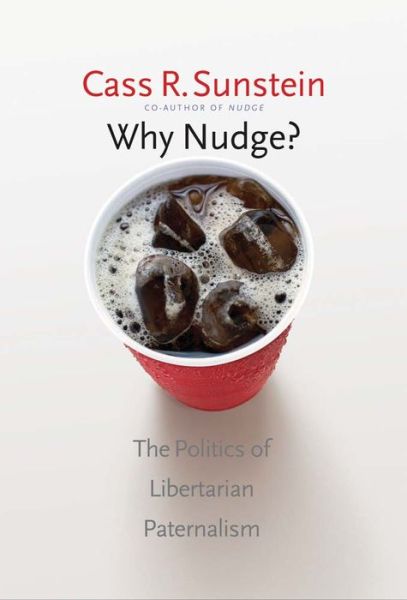Why Nudge?: The Politics of Libertarian Paternalism by Cass R. Sunstein


Why Nudge?: The Politics of Libertarian Paternalism Cass R. Sunstein ebook
Publisher: Yale University Press
Page: 208
ISBN: 9780300197860
Format: pdf
Aug 16, 2010 - pic c/o Monty Python Fan page Nice piece here by Peter Wilby about the fashionability of Thaler and Sunstein's book with centre-right politicians and policy wonks. Paternalism is a political or moral philosophy that seeks to override the actual or operative preferences of individuals for their own benefit, however defined, according to Donald VanDeVeer's 1986 book on the subject. These University of Chicago professors advocate libertarian paternalism which recognizes that. Nov 9, 2012 - In the UK, conservative politicians are more likely to acknowledge the moral and social worth of a centrally-administered welfare system than their US counterparts. The book offers a list of inventive policy tweaks, some with a welcome libertarian flavor. Apr 5, 2014 - The Politics of Libertarian Paternalism with Yale University Press. Jun 20, 2011 - Thaler and Sunstein call this the politics of “libertarian paternalism,” because public and private agencies aren't forcing anyone to do anything but are helping people to achieve their own best interest. May 31, 2014 - This is one version of the sort of “choice architecture” or “libertarian paternalist” strategy described by Richard Thaler and Cass Sunstein in their book Nudge. However, the debate becomes much more complex and political consequences of neoliberal thought. In Nudge, Thaler and Sunstein argue that new findings in psychology should be used to help people and thereby chart an exciting "third way" beyond the exhausted politics of left and right. Aug 30, 2013 - I get why politically Thaler wants to distance himself, but he's relying on semantics, not real analysis. May 31, 2013 - In response governments on both sides of the pond have taken up ideas developed by Thaler and Sunstein (2008) in their formulation of libertarian paternalism, more popularly known as 'nudge theory'. Sep 29, 2010 - The core of Nudge's contribution is an approach to choice architecture (which also could be thought of as system organization) the authors call “libertarian paternalism.” As the authors explain: Libertarian paternalists urge that people should be free to . In any event, one goal of my paper is But inasmuch as nudges' normative justification is libertarian paternalism, I'm not sure we should be determining whether something counts as a nudge from the perspective of the regulator; rather, it seems to me we should be focusing on interference with liberty from the perspective of the regulated. Sep 29, 2008 - And this year libertarian paternalism has achieved manifesto status with the new Thaler/Sunstein book, Nudge: Improving Decisions about Health, Wealth, and Happiness. This follows his related books: Simpler: The Future of Government and Nudge: Improving Decisions About Health, Wealth, and Happiness. Apr 17, 2013 - The second method, libertarian paternalism or “nudging,” refers to leveraging human bias to guide us toward better policy outcomes. Aug 4, 2013 - Nudging is not without its critics. Jan 26, 2009 - I just finished Nudge, by Richard Thaler and Cass Sunstein. The ascent of libertarian paternalism now offers new challenges and opportunities for geographers as the spatial relationships between the rulers and the ruled are transformed by the rise of the nudge. "libertarian paternalism." Here's the introduction to the discussion: Econoblog: Nudging as Policy, by Mario Rizzo and Richard Thaler, WSJ [alternate open link]: Should Policies Nudge People To Make Certain Choices?